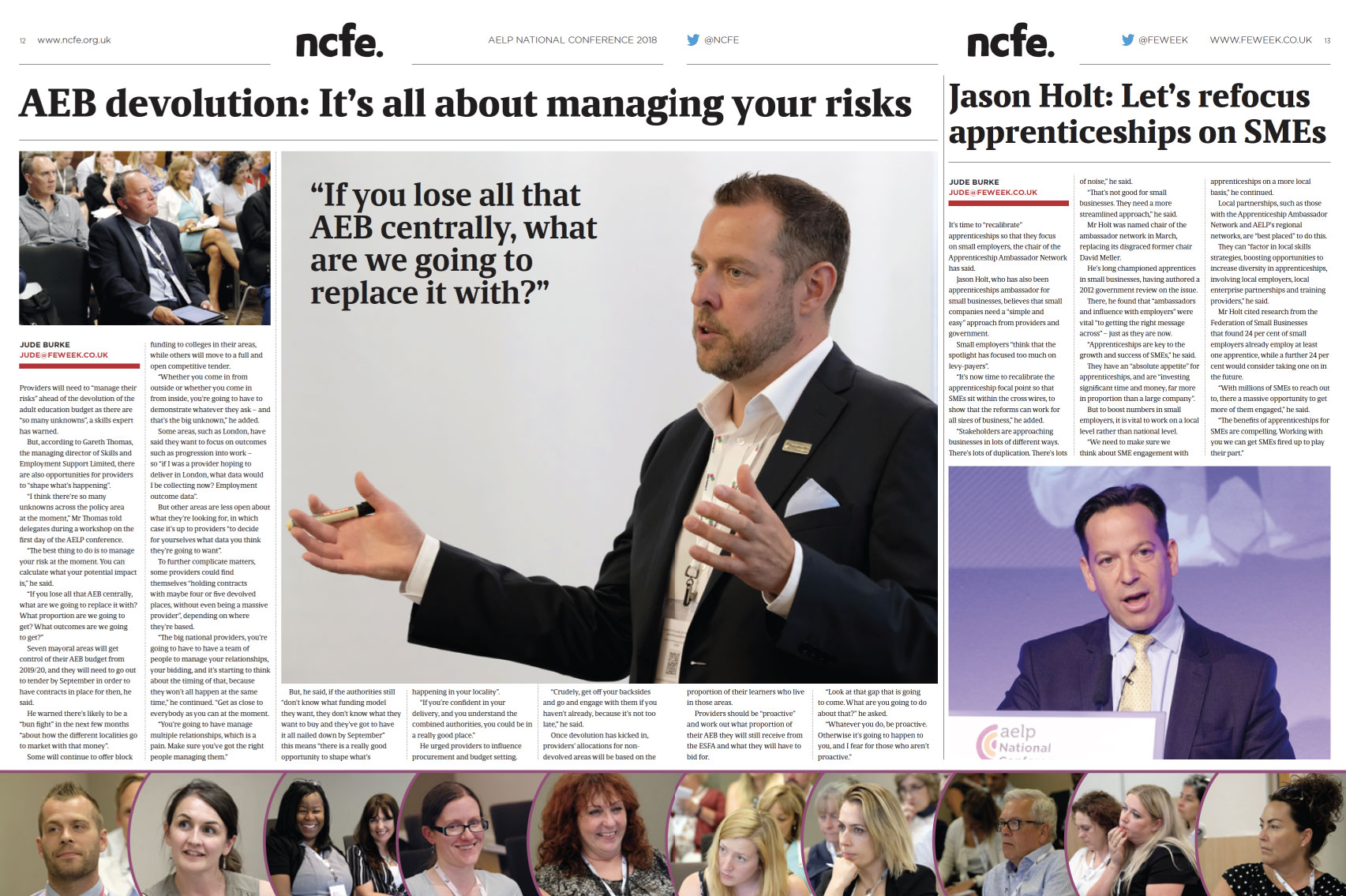Case Study - FE WEEK Supplement Article
AELP National Conference 2018
AEB devolution: It’s all about managing your risks
Providers will need to “manage their risks” ahead of the devolution of the adult education budget as there are “so many unknowns”, a skills expert has warned. But, according to Gareth Thomas, the managing director of Skills and Employment Support Limited, there are also opportunities for providers to “shape what’s happening”.
“I think there’re so many unknowns across the policy area at the moment,” Mr Thomas told delegates during a workshop on the first day of the AELP conference.
“The best thing to do is to manage your risk at the moment. You can calculate what your potential impact is,” he said.
“If you lose all that AEB centrally, what are we going to replace it with? What proportion are we going to get? What outcomes are we going to get?”
Seven mayoral areas will get control of their AEB budget from 2019/20, and they will need to go out to tender by September in order to have contracts in place for then, he said. He warned there’s likely to be a “bun fight” in the next few months “about how the different localities go to market with that money”.
Some will continue to offer block funding to colleges in their areas, while others will move to a full and open competitive tender.
“Whether you come in from outside or whether you come in from inside, you’re going to have to demonstrate whatever they ask – and that’s the big unknown,” he added.
Some areas, such as London, have said they want to focus on outcomes such as progression into work – so “if I was a provider hoping to deliver in London, what data would I be collecting now? Employment outcome data”.
But other areas are less open about what they’re looking for, in which case it’s up to providers “to decide for yourselves what data you think they’re going to want”.
To further complicate matters, some providers could find themselves “holding contracts with maybe four or five devolved places, without even being a massive provider”, depending on where they’re based.
“The big national providers, you’re going to have to have a team of people to manage your relationships, your bidding, and it’s starting to think about the timing of that, because they won’t all happen at the same time,” he continued. “Get as close to everybody as you can at the moment.
“You’re going to have manage multiple relationships, which is a pain. Make sure you’ve got the right people managing them.”
But, he said, if the authorities still “don’t know what funding model they want, they don’t know what they want to buy and they’ve got to have it all nailed down by September” this means “there is a really good opportunity to shape what’s happening in your locality”.
“If you’re confident in your delivery, and you understand the combined authorities, you could be in a really good place.”
He urged providers to influence procurement and budget setting. “Crudely, get off your backsides and go and engage with them if you haven’t already, because it’s not too late,” he said. Once devolution has kicked in, providers’ allocations for non-devolved areas will be based on the proportion of their learners who live in those areas.
Providers should be “proactive” and work out what proportion of their AEB they will still receive from the ESFA and what they will have to bid for.
“Look at that gap that is going to come. What are you going to do about that?” he asked.
“Whatever you do, be proactive. Otherwise it’s going to happen to you, and I fear for those who aren’t proactive.”
FE WEEK Supplement Article


